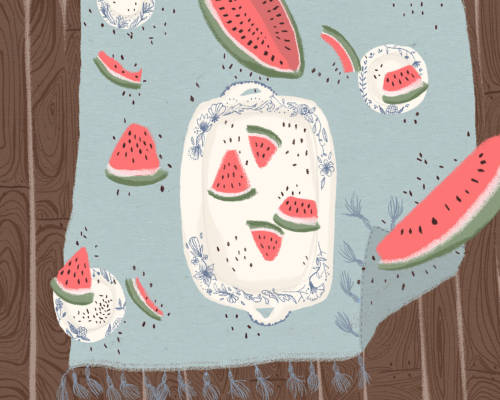
Yes, You CAN Eat Watermelon Seeds
In a land where pumpkin seeds and sunflower kernels reign supreme, a new kind of alternative seed is coming to bags of trail mix near you: watermelon seeds.
Long regarded as a disposable component of the most nourishing fruit on the planet, watermelon seeds have historically been discarded, thought to be inedible and (perhaps more offensively,) gross-tasting. You can, however, eat them, and they are (when prepared appropriately) both delicious and nourishing– you just have to sprout and shell the seeds before eating.
Watermelon seeds have 10g of protein per ounce. Once stripped of their black shells, they resemble the wide, paddle-like seeds found in squash and pumpkins, which grow similarly on a vine and low to the ground, where seeds are apt to germinate after being ingested by predators. Flavor-wise, watermelon seeds taste very similar to sunflower seeds, though they are more seed-like and less nutty (a function of the seed’s higher protein and lower fat content.)
Watermelon seeds have 10g of protein per ounce, and are rich in B vitamins, magnesium, and monounsaturated fats.
Sprouting enhances the bioavailability of B vitamins and magnesium, which, along with watermelon seeds’ monounsaturated and polyunsaturated fat content, have been shown to prevent lethargy, reduce cholesterol levels, and mitigate the twin risks of heart disease and stroke. Blended into trail mix or eaten by themselves, watermelon seeds also represent the consummate pioneer ideology of “using the entire” plant: from the flesh to the seeds. Try seasoning them like you would any homemade pumpkin seeds– with a little olive oil and salt, cinnamon and sugar, or turmeric and lime. The possibilities are endless– and surprisingly good for you.


































